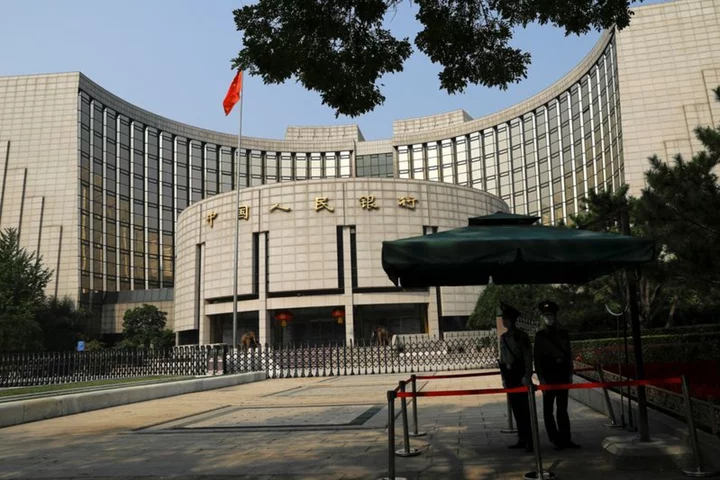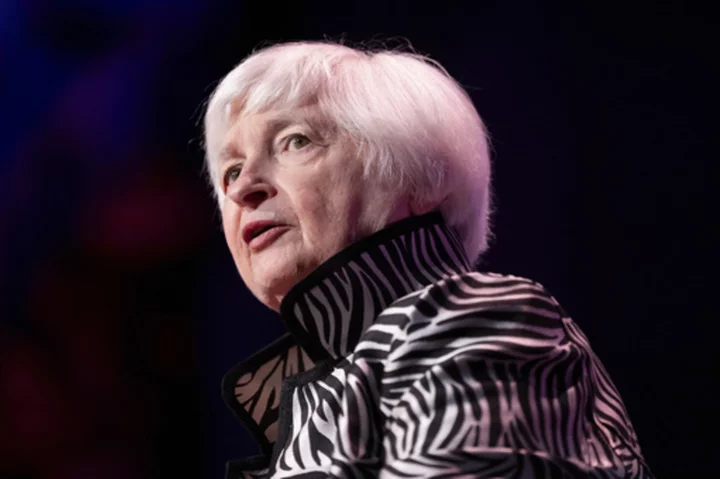By Shankar Ramakrishnan and Matt Tracy
Banks are showing a growing willingness to rework the terms of U.S. commercial real estate loans to prevent defaults, mitigating near-term losses but also masking growing stress in some parts of the market.
As U.S. commercial real estate has come under pressure, with offices and retail struggling in some areas as many people work from home, investors are worrying that losses for banks could add up to tens of billions of dollars.
In recent weeks, banks have stepped up efforts to prevent such losses, according to commercial real estate (CRE) analysts and industry data. Lenders are offering borrowers loan extensions and modifications, selling derivatives to fix interest costs, and offering subsidized loans to investors to purchase defaulted loans, the analysts said.
Their hope is that tiding over the current period would allow these properties to become profitable again and refinance in the future when interest rates fall, and data shows they are having some success.
Shaishav Agarwal, the global head of CRE capital markets at Deutsche Bank, said banks were proactively working with borrowers to help stave off defaults.
"After all that, if it came to a borrower handing over the keys, banks might join hands with equity partners with property management expertise," Agarwal added.
Some analysts said the strategy - a throwback to the “extend and pretend” tactic of the financial crisis of 2008 - is likely to get tested if the stress in the sector gets worse.
"The office sector faces the fiercest headwinds even as some investors are dipping their toes back in on newer, high-quality space," said Steve Jellinek, head of commercial mortgage backed securities (CMBS) research at DBRS.
CMBS special servicers, which handle troubled loans, had a combined unpaid principal balance of $12.74 billion in office loans as of June, up from $5.51 billion a year ago, he said.
More is likely coming. According to real estate data provider Trepp, some $20 billion of office CMBS loans are maturing in 2023.
The health of the commercial property sector is crucial for the overall economy. If sizeable losses accumulate on banks’ books, it will choke off credit and slow down growth.
The 23 largest U.S. banks held 20% of office and downtown retail CRE loans, according to the U.S. Federal Reserve. Small banks also have high exposure to CRE loans as a percentage of their assets.
In the Fed's recent stress tests, in a severely adverse scenario of CRE prices falling by 40%, the 23 large banks stood to lose $64.9 billion. Office values had fallen 12.7% by the first quarter from their peak a year ago, according to Moody’s.
LOAN MODIFICATIONS
For now, the banks’ strategy is slowing defaults, data shows.
About $2.1 billion of office loans pooled in CMBS matured in May, almost double the total amount from January through April, for example. Of that, 36.5% were modified or extended, according to a Moody's report.
That came after there were no modifications or extensions of loans in the period from February to April. If borrowers agreed to loan extensions, some $10.8 billion of office loans maturing this year would be pushed to later years, Moody's said.
Overall, default rate for the office sector stood at 4%, well below the 10% touched during the financial crisis, said Kevin Fagan, head of CRE Economic Analysis at Moody’s Analytics. Default could tick up to 6% by the end of 2023, Fagan said.
For some borrowers, defaulting became “a viable economic decision, but such defaults are still a minority,” Fagan said.
Increased interest from funds looking to pick up valued assets at a bargain price is helping banks avoid large losses as well. But such trades are not widespread as yet.
Ran Eliasaf, founder of Manhattan-based real estate private equity firm Northwind Group, said his firm had given loans secured on key New York properties and is in active talks to buy some loans from banks.
“There is, however, some mismatch in pricing expectations,” he said. Banks are offering non-performing loans with discounts of 20% to 25%, while investors like him are looking for more significant cuts, Eliasaf said.
(Reporting by Shankar Ramakrishnan and Matt Tracy; editing by Paritosh Bansal and Nick Zieminski)









